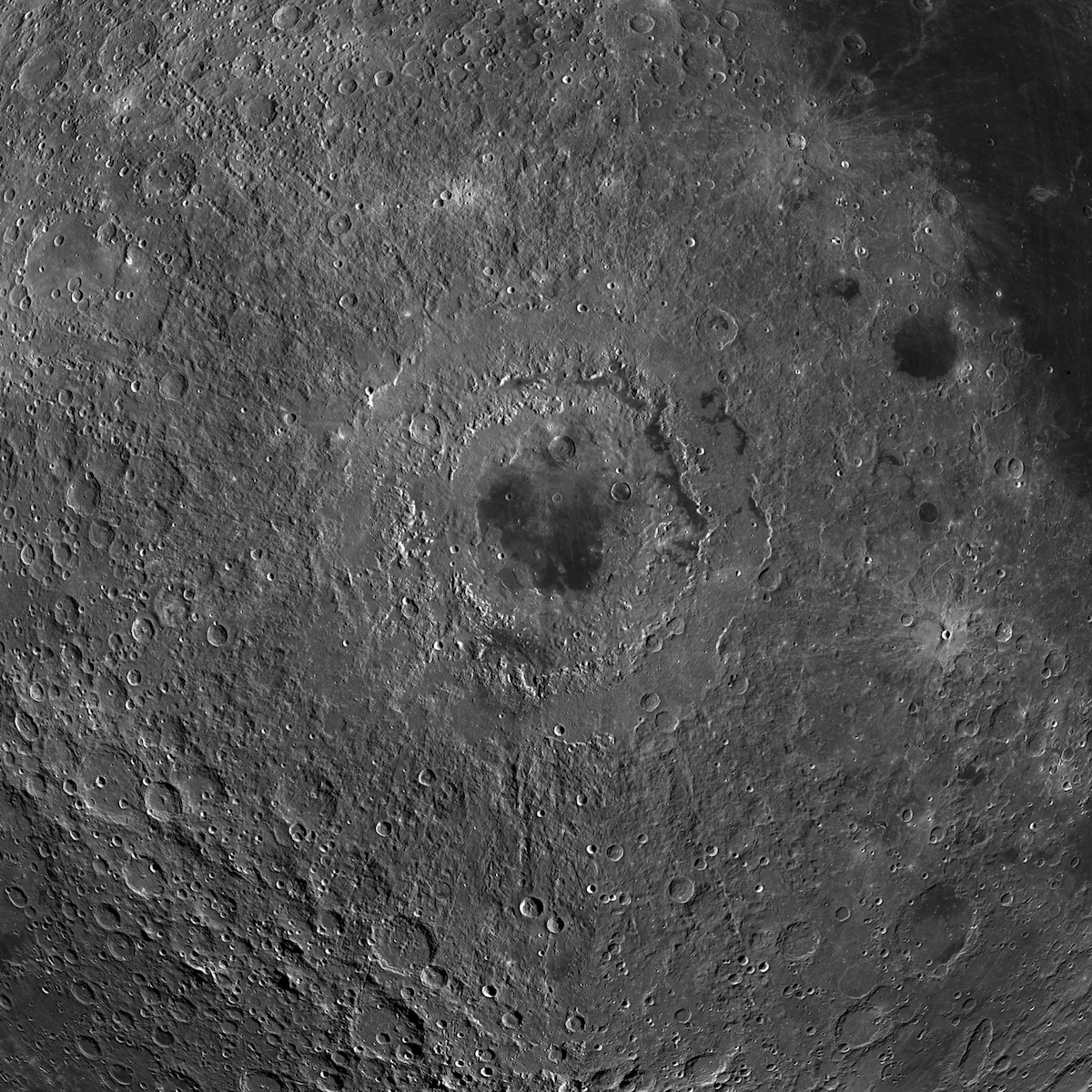
Well, not today. But at one time, the Moon was not completely separate from Earth. It really depends on how long ago life got started here whether some microbial life could have been trapped on the moon and survived a while. The sagas of the worm that survived the space shuttle blowup and the water bears in space should warn against too-hasty dismissal.
Looking at the moon today, it’s easy to reach the conclusion that it is devoid of life. The moon has no atmosphere, no magnetic field, and what little water it does have is frozen in craters at the poles. It’s hard to think of a place more inhospitable to life, but about 3.5 billion years ago, the moon was a very different place.
In that era, the moon was still relatively new, only about a billion years old. Earth’s only natural satellite still had a molten core, and gases escaping from underground magma would have produced an atmosphere. That atmosphere wouldn’t have been as thick as the Earth’s, but it would have been enough to allow liquid water to form on the surface. The molten core could have also generated a magnetic field to protect the lunar surface from solar radiation.
The fact that rocks from Mars may have ended up on Earth by natural means argues for keeping an open mind until the Moon can be explored again.
We already know this exchange of meteorites happens between Earth and Mars; scientists have recovered space rocks here on Earth that match those on the Red Planet. These Mars rocks don’t have bacteria on them, but the rocks from Earth just might have. Because meteorites can travel all the way from Mars to the Earth, it’s not hard to imagine rocks from Earth landing on the moon with some bacteria that came along for the ride. Avery Thompson, “Life May Have Once Existed on the Moon” at Popular Mechanics
In theory, NASA does plan to go back to the moon. Probably, they’ll need hands-on human exploration. We can only expect machines to carry out operations with respect to the things we have already thought of and the actual scene may require new ideas and new interpretation.
See also: Is that Mars lake way too salty for life? Yes, in Hugh Ross’s expert view. The news copy around life on Mars generally sounds as though it is written for people who have an emotional need to believe that there is life on Mars, whether there is or not. Call it a specialized version of the Drake Equation. The last place to look for reasonable skepticism often turns out to be science writing.
But if we don’t find life on either Mars or Europa… … are we justified in drawing the conclusion that life is just not very common in the galaxy and that we are special? As opposed to They Must Be Out There Somewhere, experienced as an act of faith? What makes that act of faith “science”?